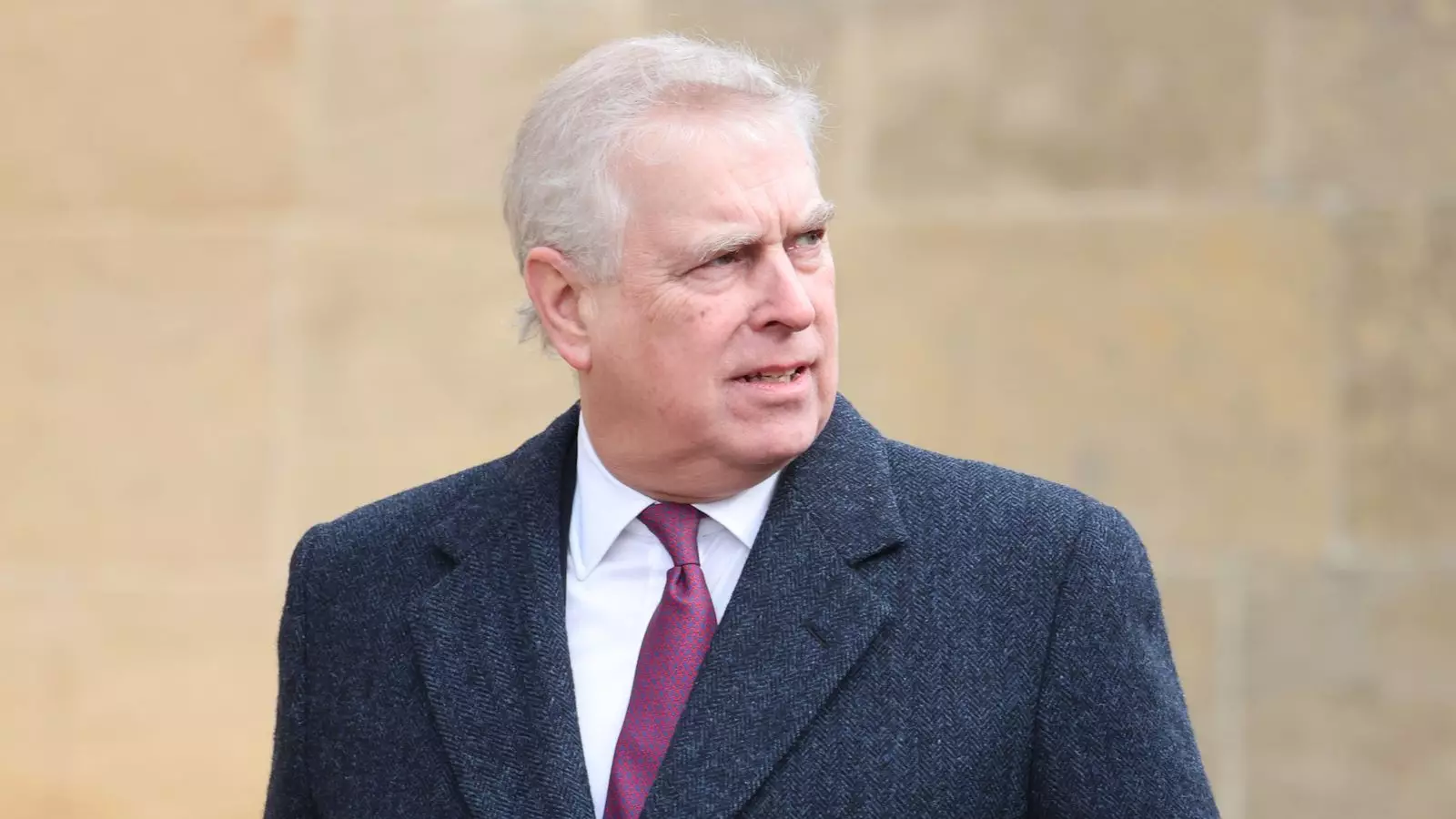In the world of royalty and celebrity, one misstep can lead to monumental consequences. Recently, Prince Andrew has found himself amid turmoil due to his alleged association with a businessman deemed a potential threat to national security. The Duke of York’s declaration that he has severed ties with this individual has sparked considerable conversation regarding the implications of social circles in a realm governed by scrutiny and image.
Prince Andrew, the Duke of York, has long walked a precarious path within the British royal family. His departure from public life began in 2019 amid controversy surrounding his previous friendship with Jeffrey Epstein, the late financier implicated in numerous sexual offenses. In light of his historical challenges, the recent revelations about his association with a businessman referred to as H6 raise eyebrows, particularly within the context of diplomatic relations and national security.
The alleged “close confidant” has reportedly been barred from entering the UK due to concerns over espionage activities tied to the Chinese Communist Party. The timing of these concerns is crucial; as governments navigate increasing tensions with China, any connection, particularly one involving a royal family member, can attract significant media attention and public intrigue.
In a formal announcement, Prince Andrew claimed to have ended all contact with the unnamed individual upon receiving recommendations from government officials. His statement emphasized that, although they met through formal channels, discussions of a “sensitive nature” were never a topic of dialogue. This assertion attempts to mitigate the perceived seriousness of his relationship with the accused, but it inevitably raises questions about the nature and extent of their engagement.
Andrew’s attempt to distance himself from speculation reflects a broader theme observed in contemporary royal affairs: the balancing act between personal connections and public perception. His previous experiences, including the harrowing fallout from his ties to Epstein, likely influenced his cautious approach to this situation.
The Home Office’s initial exclusion of H6 from the UK in 2023 encapsulates the gravity of the situation. Leaked details illustrate that H6 had been accused of “covert and deceptive activity” which compelled the government to intervene. The Special Immigration Appeals Commission upheld this ban, citing a need to protect Andrew, who could be unwittingly exposed to harmful influence.
This narrative reflects the unique threats faced by individuals within privileged circles. When aristocracy intersects with global politics, individuals may become pawns in larger geopolitical games. The implications ripple out, creating a complex dynamic that challenges the traditional views of nobility within contemporary governance.
In response to these developments, the Chinese embassy in the UK criticized the allegations, suggesting that the accusations were part of a broader agenda to tarnish China’s image. This counter-narrative complicates the discourse surrounding espionage and national security, probing at the intersection of diplomacy and public relations. The embassy’s remarks point toward a growing trend of rhetoric where nations position themselves against one another, often leveraging public figures and their associations as evidence in larger political skirmishes.
Amidst scandals and national security fears, Prince Andrew’s journey serves as a vivid reminder of the fragility that accompanies royal status. While the Duke has attempted to navigate these treacherous waters with statements of caution and assurance, the subject matter remains contentious. The blending of personal affiliations with national narratives continues to cast a long shadow over his public persona, haunting him as he searches for redemption in a world that is quick to judge.
As the story unfolds, it may serve to inform future engagements of royals with private citizens and highlights the delicate balance that must be maintained in a world fraught with suspicion and scrutiny. This incident underscores the complexities of standing in the public eye, where every connection can trigger a larger conversation about trust, influence, and the responsibilities that come with privilege.

